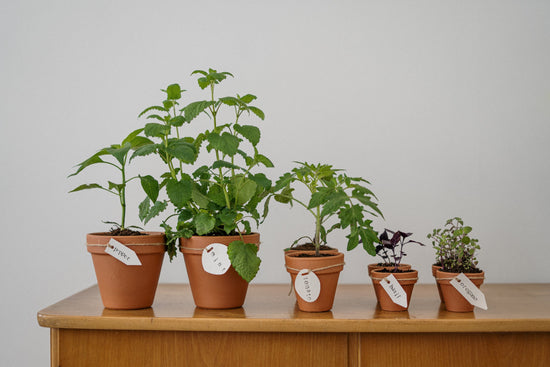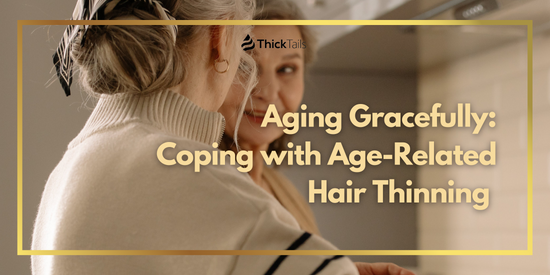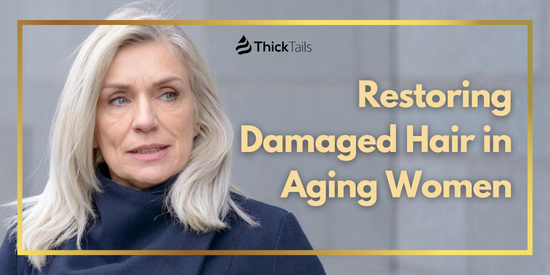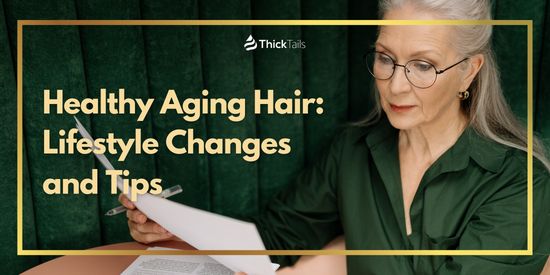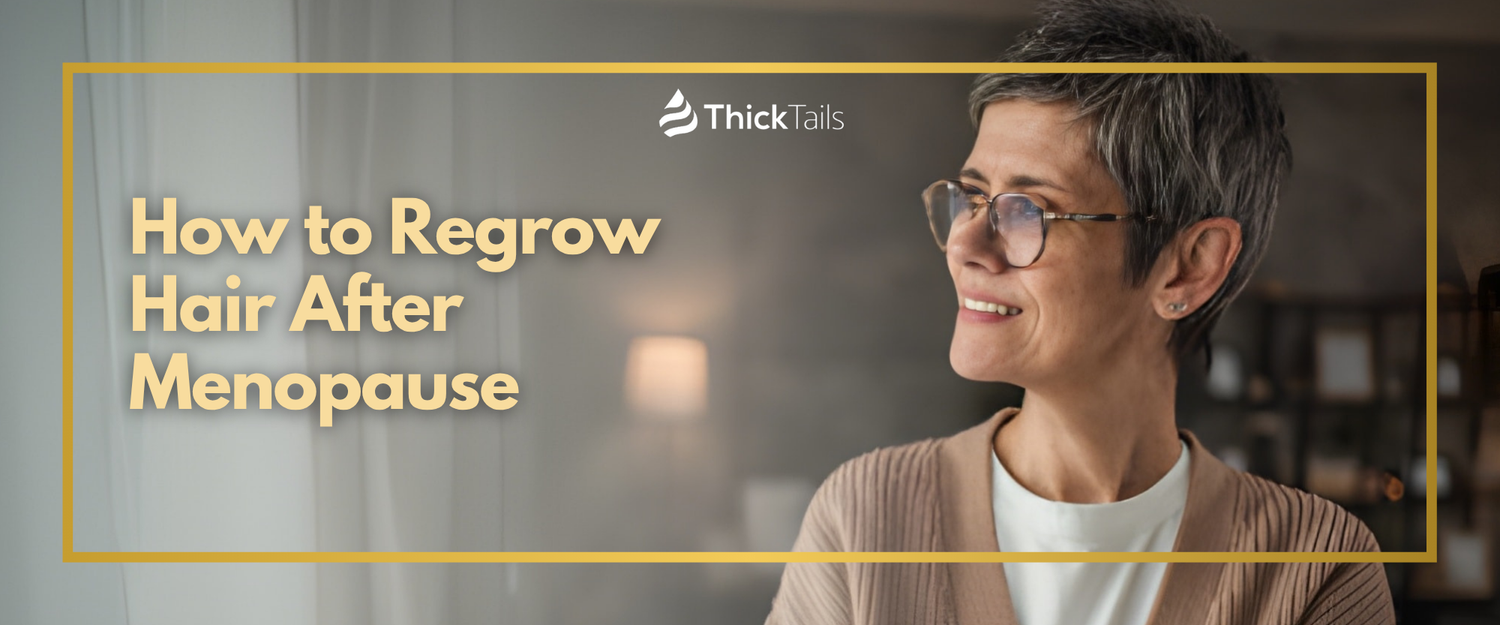For many women, the aging process is not just about wrinkles and fine lines; it's also about the changes we see on top of our heads. Our hair is often seen as a reflection of our identity, our youth, and our health, so it’s no wonder that the topic of aging hair in women can spark a frenzy of myths and misconceptions. From graying to thinning, understanding what's really happening with our hair can make the difference between panic-induced product hoarding and an effective, balanced hair care routine.
In this comprehensive exploration, we'll debunk some common myths revolving around hair aging and address how women can maintain their hair's vibrancy, regardless of their stage in life.
I. Debunking Common Myths About Aging Hair in Women

One pervasive myth concerning aging in women is the belief that hair loss is an inevitable and uncontrollable aspect of getting older. However, while hormonal changes and genetics play a significant role in hair density and health, the narrative that women must accept hair loss as a natural part of aging is misleading. Proper nutrition, stress management, and tailored hair care routines can significantly mitigate the effects of aging on hair. It's crucial for women to understand that aging doesn't automatically equate to drastic hair loss and that there are numerous strategies to maintain hair health and minimize thinning as they age.
Myth vs. Reality: Understanding the Aging Process of Hair
Myth:
Every woman's hair starts to gray in her forties.
Reality:
Actually, the age at which graying begins is largely influenced by genetics. Some women may notice their first gray hairs in their twenties, while others may not see any until later in life. The graying process is linked to a decline in melanin production, which is largely determined by our DNA.
The Impact of Genetics and Hormones on Hair Aging
Myth:
Hair thinning is solely due to aging.
Reality:
While it is true that aging can contribute to hair thinning, it is often a mix of genetics, hormones, and in some cases, health conditions that play the biggest role. Androgenetic alopecia, or female pattern baldness, can start in the twenties or thirties, often accelerated by life changes like pregnancy, menopause, or illness.
Separating Fact from Fiction: Misconceptions About Hair Care Products for Aging Hair
Myth:
Special shampoos can reverse gray hair.
Reality:
No shampoo can reverse gray hair. Some shampoos may claim to prevent graying, but the only proven method to affect the color of hair is dyeing. Shampoos can, however, help maintain the health and shine of gray or aging hair by providing nourishing and sulfate-free cleansing.
II. Maintaining Healthy, Vibrant Hair as You Age
For women, navigating the aging process involves understanding and adapting to changes in hair health, including potential hair loss. It's important to recognize that though aging can influence hair thinning or loss, these conditions are not solely reserved for later life stages and can be addressed with appropriate care. By debunking the myths surrounding aging hair, women can be empowered to approach hair care with informed strategies that support hair's vibrancy and strength over time. Engaging with trusted information about aging, hair loss, and maintenance can lead to a more positive and effective hair care routine, ensuring that women feel confident and supported at every age.
Essential Nutrients and Supplements for Aging Hair
Myth:
Taking biotin will make my hair grow faster.
Reality:
Biotin can help improve the strength and health of your hair, but it won't necessarily make it grow faster. Other important nutrients like vitamin D, iron, and omega-3 fatty acids also play significant roles in hair health. A balanced diet and, where necessary, supplements can support overall hair vitality.
Effective Hair Care Products and Regimens for Aging Hair
Myth:
The more you wash your hair, the healthier it is.
Reality:
Over-washing can strip the hair of natural oils, leading to dryness and breakage. For aging hair, a gentler approach is recommended, with a focus on moisturizing and strengthening products. How often you should wash your hair depends on your hair type and lifestyle, but generally, less frequent washing is better for hair health.
Lifestyle Habits That Support Hair Health as You Age
Myth:
All hair styling tools cause damage and should be avoided.
Reality:
While it's true that excessive heat and aggressive styling can cause damage, not all tools are created equal. High-quality, heat-protective products and tools can minimize damage. It's also essential to avoid tight hairstyles that put strain on the hair shaft, contributing to breakage and hair loss.
III. Understanding the Factors That Affect Hair Health

In navigating the multifaceted aspects of aging, women often confront the challenge of hair loss, a condition that punctuates the already complex scenario of physical changes. This issue, rooted in a mixture of genetic predisposition, hormonal fluctuations, and health dynamics, symbolizes more than just a cosmetic concern; it represents a significant part of a woman's identity and her perception of vitality. Acknowledging the intricate relationship between aging and hair loss empowers women to seek tailored solutions and adopt a proactive stance in preserving their hair's health and luminosity, thereby reinforcing their confidence and well-being through the years.
Environmental Factors: How Pollution and Sun Exposure Affect Aging Hair
Myth:
Pollution and sun exposure only affect the skin, not the hair.
Reality:
Pollution can lead to the accumulation of toxins and free radicals in the hair follicles, which can impact the hair growth cycle. Sun exposure can cause dryness, color fading, and structural damage to the hair. Protective styles, like using a hat or scarf, as well as products with UV filters, can help mitigate these effects.
Psychological Factors: Stress and Its Influence on Hair Aging
Myth:
Stress doesn't really cause hair loss.
Reality:
Stress can indeed lead to a type of hair loss called telogen effluvium, where a significant stressor pushes a large number of hair follicles into a resting phase, resulting in shedding about 3-4 months later. Managing stress through techniques like meditation, exercise, and mindfulness can help maintain hair health.
Debunking Hair Coloring Myths: Can Dyeing Your Hair Cause Premature Graying?
Myth:
Coloring your hair causes it to gray more.
Reality:
Hair dyeing doesn’t affect the rate at which hair turns gray. However, repetitive dying – particularly with aggressive chemicals – can weaken the hair shaft over time, leading to a look of accelerated graying or dullness. Choosing gentler or natural dyes and giving your hair time to recover between coloring can prevent unnecessary damage.
The key takeaway in addressing hair aging is knowledge. Understanding what's happening to your hair, outside of sensationalized myths, helps women make informed decisions about their hair care routines. By incorporating the wisdom shared here, women can not only maintain the health and vibrancy of their hair but also approach the aging process with confidence and grace. It’s not just about looking younger; it’s about feeling your best at every stage of life.



